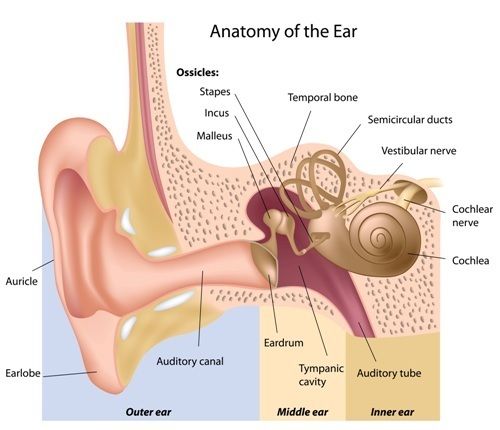Balance Disorders
Balance Disorders May Be Caused by Medication or a Health Condition
Your balance and eye movements are regulated by the vestibular system, which includes parts of the inner ear and brain. Damage to this system due to trauma, disease, or age can disrupt your balance, causing symptoms including dizziness and vertigo. A balance disorder may make you feel dizzy or unsteady when you are standing, sitting, or even lying down. Balance disorders can be caused by a health condition, certain medications, or even an ear infection.
Chesapeake ENT doctors can help, as we diagnose and treat a variety of balance disorders at our Baltimore, MD, practice. If you have experienced episodes of dizziness or vertigo recently, contact our office today to schedule an appointment.
Symptoms of a Balance Disorder
The symptoms of a balance disorder may appear abruptly and involve varying degrees of dizziness. Episodes may come and go, or be long lasting, leading to fatigue and depression. Symptoms may include:
- Episodes of vertigo, or the sensation that you are spinning
- The sensation that you are falling or going to fall
- Feeling light-headed, faint, or as if you are floating
- Blurry vision
- Feeling disoriented or confused
- Staggering when walking, or difficulty walking in a straight line
- Nausea or vomiting
- An increased heart rate or blood pressure
Causes of a Balance Disorder
The cause of a balance disorder may not be immediately obvious to you or your doctor, although the risk of a balance disorder increases with age. It is important to provide your practitioner with a complete medical history and a complete list of any medications you are taking. Balance disorder causes may include:
- Certain medications
- Ear infection, especially a double or inner ear infection
- Head injury
- Arthritis
- Eye muscle imbalance
We can determine the root cause of your dizziness and vertigo and provide the treatment you need to restore your quality of life.
Types of Balance Disorders
There are several types of balance disorders, each of which may have different symptoms and causes, and may require different treatment:
- BPPV (benign paroxysmal positional vertigo): An intense but brief episode of vertigo that is set off by a specific positioning of the head.
- Labyrinthitis: Caused by an inflammation or infection of the inner ear, this disorder may be associated with illnesses such as the flu.
- Ménière’s Disease: This disorder causes episodes of vertigo in conjunction with loss of hearing and ringing or buzzing in the ears.
- Vestibular Neuronitis: A balance disorder caused by inflammation of the vestibular nerve due to a virus.
- Perilymph Fistula: A disorder that occurs when fluid from the inner ear leaks into the middle ear.
- Mal de Debarquement: A feeling of rocking or bobbing after sea travel, typically temporarily. Image of anatomy of the ear Our team successfully diagnoses and treats a variety of balance disorders.

Diagnosis and Treatment
Your doctor may use a combination of hearing and blood tests, eye movement tests, and imaging studies to make a diagnosis. Other tests may be used to measure your balance and reaction to movements. Your doctor will determine if your balance disorder is due to an underlying cause such as a medication, or a health condition, and will either provide appropriate treatment or refer you to another specialist.
The BPPV balance disorder can be treated with a series of simple movements under the guidance of your physician over the course of one or several sessions. Ménière’s Disease can improve with dietary and lifestyle changes and prescription medication to relieve symptoms. Vestibular rehabilitation may be necessary for patients with disorders that cannot be fully treated, to help them cope with their balance disorder.
Contact Us Today
While some episodes of dizziness or vertigo may be temporary, if they recur or last longer than expected, they can have a negative impact on your quality of life. If you are suffering from episodes of dizziness or vertigo, contact our office today to schedule an appointment to determine the root cause, and receive the treatment you need to restore your quality of life.
“I received excellent care at Chesapeake ENT. Their prompt response and cheerful attitudes made for a wonderful experience. All of the audiologists were very helpful. Especially Dr. Laura Toll, her knowledge of hearing aids and the new technology offered made for an easy decision."
★★★★★
- Tanya
"Was very knowledgeable and helpful."
★★★★★
- Saafir
"Very courteous and on time."
★★★★☆
- Pauline




